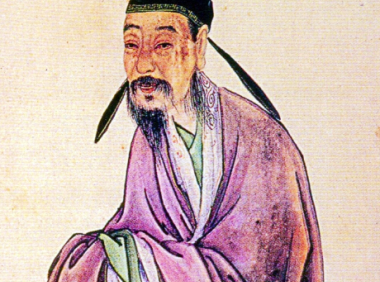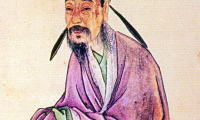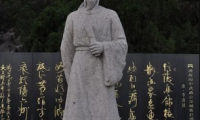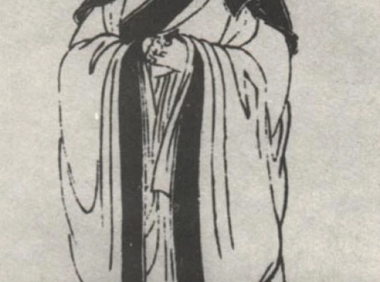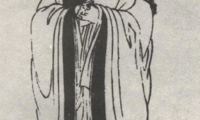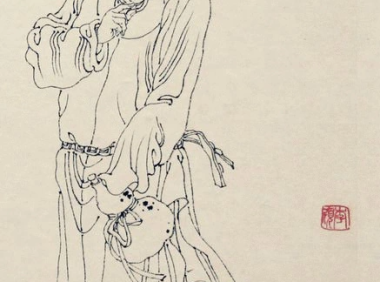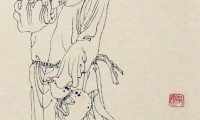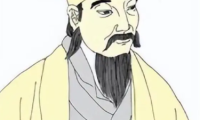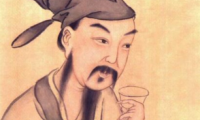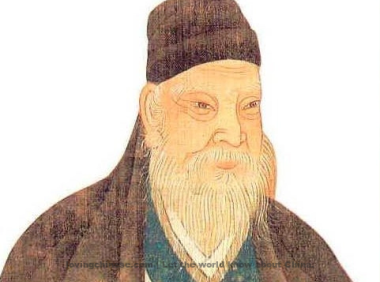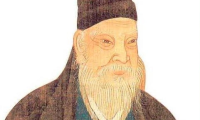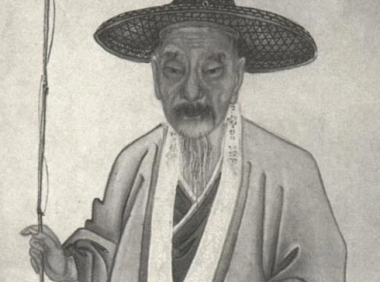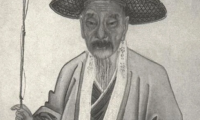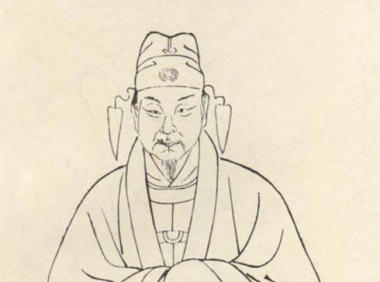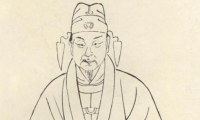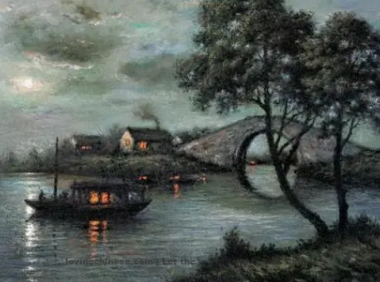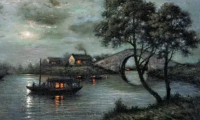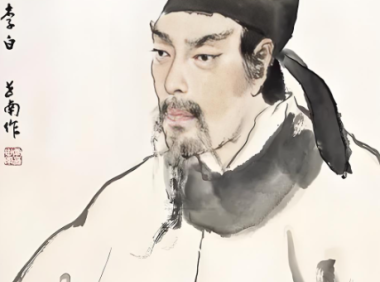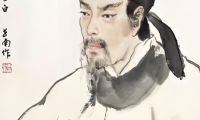-
Wang Wei: She Shone in Beauty—Idyll of Xishi ~ 《西施咏》 王维with English Translations
Wang Wei 小编导读:《西施咏》是唐代诗人王维的一首五言古诗。诗人借西施从平民到宫廷宠妃的历史典故,来揭示人生浮沉,全凭际遇的炎凉世态,并表达对小人的嘲讽,揭露当时社会上潜藏的危机,抒发诗人怀才不遇的不平与感慨;借世人只见显贵时的西施之美,表达对势利小人的嘲讽;借“朝为越溪女”的西施“暮作吴宫妃”后的骄纵,讥讽那些由于偶然机遇受到恩宠就趾高气扬、不可一世的人;借效颦的东施,劝告世人不要为了博取别人赏识而故作姿态,弄巧成拙。 Editor's introduction: "Ode to Xi Shi" is a five-character ancient poem by Wang Wei, a poet of the Tang Dynasty. The poet uses the historical allusion of Xi Shi's rise from a commoner to a favorite concubine of the palace to reveal the ups and downs of life, which all depend on the vicissitudes of the world, and to express his ridicule of villains, revealing the crisis hidden in the society at that time, and expressing the poet's injustice and emotion of not being able to use his talent; by using the beauty of Xi Shi when the world only saw her nobles, he expresses his ridicule of snobbish villains; by using the arrogance of Xi Shi, who was "a girl from Yuexi in the morning" and "a concubine in the palace of Wu in the evening", he ridicules those who are arrogant and insolent because of being favored by chance; by using Dong Shi, who imitated Dong Shi, he advises the world not to pretend to be pretentious in order to win others' appreciation, which will backfire. 《西施咏》 王维 艳色天下重,西施宁久微。朝为越溪女,暮作吴宫妃。贱日岂殊众,贵来方悟稀。邀人傅脂粉,不自着罗衣。君宠益娇态,君怜无是非。当时浣纱伴,莫得同车归。持谢邻家子,效颦安可希。 She Shone in Beauty—Idyll of Xishi She shone in beauty without a peer,How could she hide…...
- 0
- 0
- 78
-
Li Shangyin’s Poetry – Elegy on Liu Fen- 李商隐《哭刘司户蕡》
Li Shangyin 哭刘司户蕡 路有论冤谪, 言皆在中兴。 空闻迁贾谊[1], 不待相孙弘[2]。 江阔惟回首, 天高但抚膺[3]。 去年相送地, 春雪满黄陵。 刘蕡冤谪而死,诗人借路人之口谈论冤谪,不仅表现了对刘蕡的同情和敬重,也从侧面反映了对宦官诬陷刘蕡的痛恨和谴责。 注释: [1]贾谊:(前200年—前168年),西汉初年著名政论家、文学家,世称贾生。贾谊少有才名,文帝时任博士,迁太中大夫,受大臣周勃、灌婴排挤,谪为长沙王太傅,故后世亦称贾长沙、贾太傅。三年后被召回长安,为梁怀王太傅。梁怀王坠马而死,贾谊深自歉疚,抑郁而亡,时仅三十三岁。 [2]孙弘:公孙弘,汉武帝时初为博士,一度免归,后又受到重用,官至丞相,封平津侯。 [3]抚膺:抚摩或捶拍胸口。表示惋惜、哀叹、悲愤等。 Elegy on Liu Fen Caring but for prosperity, You were degraded unjustly Like the banished scholar-sage Not to be promoted to peerage. Turning to see the River wide, I beat my breast and deeply sighed. Now where last year we bade goodbye. Snow’s whitened yellow mountains high. Liu Fen died due to unjust exile. The poet used a passerby's words to talk about the unjust exile, which not only showed his sympathy and respect for Liu Fen, but also indirectly reflected his hatred and condemnation of the eunuchs for framing Liu Fen....
- 0
- 0
- 27
-
Li Shangyin’s Poetry – 李商隐《吴宫》
Li Shangyin 吴宫[1] 龙槛[2]沉沉水殿清, 禁门[3]深掩断人声。 吴王宴罢满宫醉, 日暮水漂花出城。 该诗借咏史以讽刺封建王侯的荒奢,王公贵族们成天沉迷于醉生梦死的奢靡生活中,老百姓却民不聊生,过着食不果腹、饥寒交迫的生活。诗人借古慨今,用心良苦,色彩鲜明,言尽而味无穷。 注释: [1]吴宫:春秋末年吴王夫差所建宫殿。 [2]龙槛:宫中临水有栏杆的亭轩类建筑。 [3]禁门:宫禁的大门。 The Eastern Palace Shadows of poolside bowers cast on water clear, All the doors closed,merry-making noises disappear. After the royal feast all the palace is drank. Only fallen petals flow out when the sun is sunk. The poem uses history to satirize the extravagance of feudal princes, who indulged in a life of luxury and debauchery while the common people were living in poverty, starving and cold. The poet used the past to express his feelings about the present, with good intentions, vivid colors and endless meaning....
- 0
- 0
- 22
-
Li Shangyin’s Poetry – 李商隐《龙池》
Li Shangyin 龙池 龙池[1]赐酒敞云屏, 羯鼓[2]声高众乐停。 夜半宴归宫漏永[3], 薛王[4]沉醉寿王[5]醒。 这是一首咏史诗,表达了作者对封建帝王骄奢淫逸的不满和嘲讽。 注释: [1]龙池:既是地名,也是舞曲名。这里指皇帝的宫殿。 [2]羯鼓:一种出自外夷的乐器,据说来源于羯族。 [3]漏永:形容漫漫长夜。漏,古代的计时器。 [4]薛王:唐玄宗弟弟李业之子。 [5]寿王:唐玄宗的儿子李瑁。 Dragon Pool Feast At Dragon Pool feast spread screens embroidered with cloud, All music drowned in the emperor’s drumbeats loud. Come back at midnight to hear the waterclock’s song, The prince not drunken lay awake all the night long. Note:Lady Yang(杨贵妃),former wife of the prince(寿王)became the emperor’s(唐玄宗)favorite concubine,so the prince could not fall asleep after the emperor’s feast. This is a historical poem that expresses the author's dissatisfaction and ridicule towards the arrogance and debauchery of feudal emperors....
- 0
- 0
- 29
-
Li Shangyin’s Poetry – 李商隐《宫辞》
This poem is similar to "Palace Prostitute" in meaning, and can be called a sister poem. It was written to ridicule the favored people of the Niu Party....
- 0
- 0
- 10
-
Li Shangyin’s Poetry – 李商隐《宫妓》
On the dancing ground caressed by crystal screens,dancers tried to play fish or dragon by showing their slender waist....
- 0
- 0
- 21
-
Li Shangyin’s Poetry – 李商隐《马嵬(二首其二)》
The poet skillfully uses flashbacks and reminiscences to vividly describe the miserable situation of Emperor Xuanzong of Tang at Mawei Slope, and the poetic associations are lifelike....
- 0
- 0
- 16
-
Li Shangyin’s Poetry – 李商隐《齐宫词》
The first two lines describe the deposed emperor of Southern Qi who was extremely licentious and died, and the country was destroyed;...
- 0
- 0
- 25
-
Li Shangyin’s Poetry – 李商隐《咏史(二首其一)》
The title of this poem has already indicated that it is a historical poem that sharply satirizes the rise and fall of the emperors of the Southern Dynasties....
- 0
- 0
- 14
-
Li Shangyin’s Poetry – 李商隐《隋宫(其一)》
This is a satire against the last emperor of the Sui Dynasty(隋炀帝)who would go south to spend a luxurious life in a riverside town if he were not overthrown by the Tang(唐)army....
- 0
- 0
- 28
-
Wang Wei Poems: A Captive Lady – 王维《息夫人》
"A Captive Lady" is a poem written by Wang Wei, a poet of the Tang Dynasty....
- 0
- 0
- 17
-
Xu Hun Poem: Royal Pavilion on the Great Canal –许浑《汴河亭》
Bianhe Pavilion" is a poem written by Xu Hun in the Tang Dynasty....
- 0
- 0
- 84
-
Li Qi Poem: Army Life – 李颀《古从军行》
This poem is a work by Li Yi, a poet of the Tang Dynasty....
- 0
- 0
- 68
-
Pi Rixiu Poem: The Great Canal – 皮日休《汴河怀古(其二)》
Pi Rixiu 汴河[1]怀古(其二) 皮日休 尽道隋亡为此河, 至今千里赖通波。 若无水殿龙舟事[2], 共禹论功[3]不较多。 注释: [1] 汴河:唐人习惯上用汴河指隋炀帝所开的通济渠的东段,也就是运河从板渚(今河南荥阳北)到盱眙县进入淮河的一段。当时,炀帝从洛阳西苑引谷、洛二水入黄河,又经黄河入汴水,再沿着春秋时吴王夫差所开的运河故道引汴水入泗水,最后到达淮水。 [2] 水殿龙舟事:大运河竣工后,隋炀帝率众二十万出游江都,造了一艘高迭四层的“龙舟”,还有九艘高三层被称为“浮景”的“水殿”。据说当时要百姓捐出全部香油,使龙舟水殿能从陆地进入水中,劳民伤财,极尽奢侈,最终民怨载道,这成为隋末之乱的直接导火索。 [3] 共禹论功:指大禹治水的功绩。 The Great Canal (Ⅱ) Pi Rixiu The Great Canal was blamed for the Sui Empire’s fall, But on its waves the goods and food are brought to all. Could the flood-fighting emperor do anything more Than the Sui dragon-boats of three stories or four? Emperor Yang of the Sui Dynasty (569—618) built the Great Canal and dragon-boats for pleasure-makiag, but it would facilitate the transportation and communication between North and South, and the poet praises him as high as the flood-fighting Emperor Yu of the Xia Dyansty (ca.2000 BC)...
- 0
- 0
- 124
-
Pi Rixiu Poem: The Palace of the Beauty – 皮日休《馆娃宫怀古五绝》
The Five Pieces of Poetic Reminiscences of Pavilion Palace are five pieces of seven poems composed by Pi Rixiu in the Tang Dynasty....
- 0
- 0
- 76
-
Li Shangyin’s Poetry – 李商隐《北齐 (二首其一)》
Li Shangyin 北齐 (二首其一) 笑相倾国便亡, 何劳荆棘始堪伤。 小怜玉体横陈夜, 已报周师入晋阳。 《北齐二首》两首诗是通过讽刺北齐后主高纬宠幸冯淑妃荒淫亡国的史实,借古鉴今。 本首借用周幽王宠褒姒而亡国的故事,讽刺“无愁天子”高纬荒淫亡国的故事。 The Downfall of Kingdom Qi (I) The king loved less his kingdom than his beauty’s smiles. Could his palace not be buried in briars for miles? His favored lady lay in bed on full display. While the foe entered his capital in array....
- 0
- 0
- 15
-
Li Shangyin Poem: On the Tower of the City Wall – 李商隐《安定城楼》
The poem "On the Tower of the City Wall" is a poem written by Li Shangyin, a poet of the Tang Dynasty....
- 0
- 0
- 80
-
Du Mu Poem: The Spring Palace – 杜牧《过华清宫》
"The Spring Palace" is a group of poems by Du Mu, a writer of the Tang Dynasty....
- 0
- 0
- 151
-
Lai Hu Poem: To the Cloud – 来鹄《云》
"To the Cloud" is a seven-line poem written by the poet Lai Kuan in the Tang Dynasty....
- 0
- 0
- 170
-
Lu Guimeng Poem: White Lotus – 陆龟蒙《白莲》
The White Lotus" is a poem written by Lu Guimeng, a poet of the Tang Dynasty....
- 0
- 0
- 83
-
Luo Yin Poem: To the Bee – 罗隐《蜂》
"To the Bee" is a seven-line poem written by Luo Yin, a poet of the Tang Dynasty....
- 0
- 0
- 100
-
Luo Yin Poem: To the Coinlike Golden Flower – 罗隐《金钱花》
"To the Coinlike Golden Flower" is a seven-part poem written by Luo Yin, a literary scholar of the Tang Dynasty....
- 0
- 0
- 71
-
Li Bai Poem: Crows Flying Back to Their Nest – 李白《乌栖曲》
"Crows Flying Back to Their Nest" is a poem written by the poet Li Bai in the Tang Dynasty....
- 0
- 0
- 74
-
Li Bai Poem: Eunuchs and Cock-fighters (ⅩⅩⅣ) – 李白《古风(其二十四)》
"Ancient Style·No. 24" is a five-character ancient poem....
- 0
- 0
- 89
Checking in, please wait...
Click for today's check-in bonus!
You have earned {{mission.data.mission.credit}} points today
My Coupons
-
¥CouponsLimitation of use:Expired and UnavailableLimitation of use:
before
Limitation of use:Permanently validCoupon ID:×Available for the following products: Available for the following products categories: Unrestricted use:Available for all products and product types
No coupons available!
Unverify
Daily tasks completed













